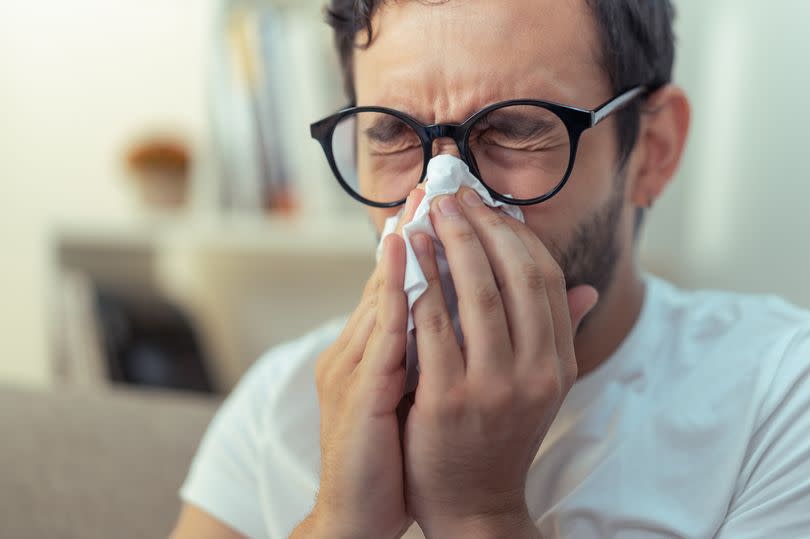Experts say eat more of one common thing to ease hay fever symptoms

Summer is now upon us - hopefully with some actual summer weather at some point - and many people are excited for the warmer days ahead. However, what's not so exciting is hay fever, something that gets worse around this time of year.
Google searches for the annoying allergy have almost doubled (46 percent) in the past week in the UK alone, sleep experts at Happy Beds have revealed. As hay fever sufferers can often feel the effects worsen at night, the sleep experts have shared their top tips for coping.
It involves eating more of one thing many of us love - garlic. They have also explained why hay fever often seems worse at night.
Why do I need to eat more garlic?
Believe it or not, the type of food you eat can either contribute towards or help reduce your allergies. Sugary, starchy and dairy products force the body to produce mucus, which in turn makes your symptoms worse - so avoid them before bed.
The experts explain that foods which contain the immune-boosting vitamin E, such as fish and egg, are a great help as they reduce the risk of upper respiratory infections. Spices such as ginger, chilli and garlic are a natural remedy because they’re rich in vitamin C - which improves lung function.
One thing to stay away from however is alcohol. Not only does it dehydrate, but it produces histamine in your body - the same chemical that an allergic reaction produces.
Why is my hay fever worse at night?
The experts explain that during the day, warm air ascends, carrying pollen with it. As the air cools, the pollen descends and settles on surfaces, potentially exacerbating hay fever symptoms.
Nevertheless, there are ways to mitigate this issue. They suggest that if you try showering before bed - and wash your hair - this could help.
This is because pollen likes to stick to your hair, so washing it before going to sleep will significantly reduce the likeliness of you having an itchy throat and experiencing symptoms of hay fever at night. By washing your hair, you’re getting rid of a large amount of the pollen that’s been building up in your hair throughout the day and you are less likely to transfer this to your pillow and bedding.

 Yahoo News
Yahoo News 
